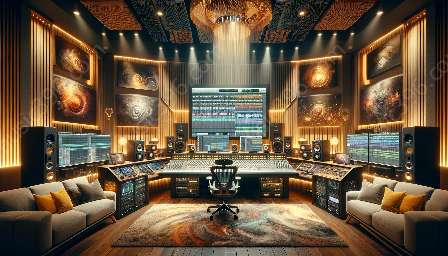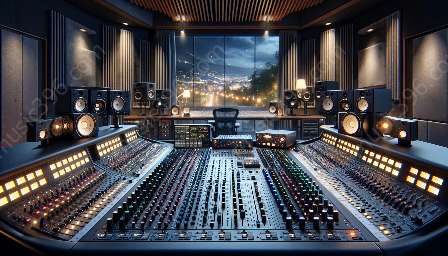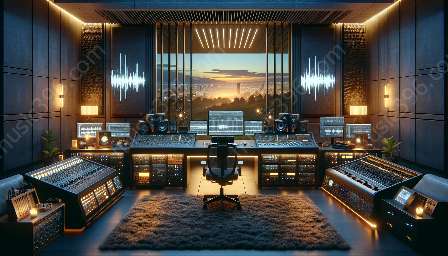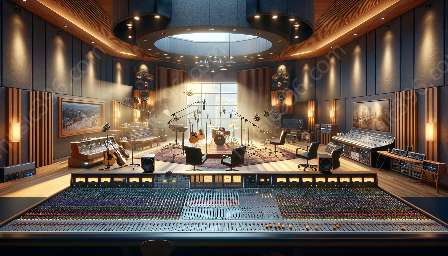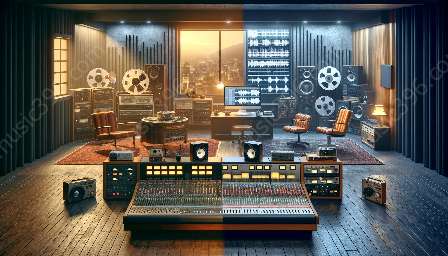Open-source platforms have revolutionized the development of audio software applications for music and audio production, playing a crucial role in driving innovation, enabling collaboration, and increasing accessibility to advanced audio technologies. These platforms have significantly impacted the way software is created, shared, and utilized in the realm of sound engineering and music production.
The Growing Significance of Open-Source Platforms
With the advancement of digital technology, the demand for innovative audio software has increased, and open-source platforms have emerged as a key enabler of this innovation. Open-source technologies provide a collaborative environment where developers, sound engineers, and music enthusiasts can contribute to the creation of cutting-edge audio applications.
Collaborative Development and Innovation
Open-source platforms foster a culture of collaboration and innovation, allowing developers to share code, tools, and resources to build robust audio software applications. This collective effort results in continuous improvements and the rapid evolution of audio technologies, driving the development of high-quality tools for sound engineering and music production.
Accessibility and Inclusivity
One of the most significant benefits of open-source platforms is the accessibility they offer to a wide range of users. By providing open access to source code and development resources, these platforms empower individuals from diverse backgrounds to engage in the creation and customization of audio software applications, thereby promoting inclusivity and diversity within the audio technology community.
Open-Source Platforms and Sound Engineering
The role of open-source platforms in sound engineering cannot be overstated. These platforms provide sound engineers with significant opportunities to explore and experiment with new tools and techniques, leading to the enhancement of audio processing, mixing, and mastering capabilities. Furthermore, open-source platforms enable the integration of advanced digital signal processing (DSP) algorithms into audio software, contributing to the advancement of sound engineering practices.
Community-Driven Development
Open-source platforms foster a vibrant community of sound engineers, software developers, and researchers who collectively contribute to the improvement and evolution of audio software applications. This community-driven development model encourages knowledge sharing, peer review, and the implementation of best practices, resulting in the creation of sophisticated tools tailored to the specific needs of sound engineers.
Customization and Flexibility
Sound engineers benefit from the flexibility and customization options offered by open-source platforms, allowing them to adapt and modify software tools to suit their unique requirements. This level of adaptability empowers sound engineers to experiment with different workflows, integrate third-party plugins, and tailor audio software applications to their specific production workflows.
Open-Source Platforms and Music Production
In the realm of music production, open-source platforms have expanded the horizons of creativity and technological advancement. These platforms provide musicians, producers, and recording engineers with access to powerful and customizable tools for music creation, recording, and editing.
Empowering Creativity and Innovation
Open-source platforms empower musicians and producers to explore new creative possibilities and experiment with innovative audio technologies. By offering a diverse range of software tools, these platforms support the creation of unique musical compositions, enabling artists to push the boundaries of sonic expression and artistic experimentation.
Integration with Digital Audio Workstations (DAWs)
Open-source platforms often integrate seamlessly with popular digital audio workstations, providing musicians and producers with a rich ecosystem of plugins, virtual instruments, and audio processing modules. This integration augments the capabilities of DAW software, enabling users to access a wide array of sonic tools and effects to enhance their music production workflows.
Community Collaboration and Knowledge Sharing
The collaborative nature of open-source platforms facilitates community collaboration and knowledge sharing among music production enthusiasts. This exchange of ideas, techniques, and resources fosters a supportive environment where individuals can learn, grow, and contribute to the collective advancement of music technology.
The Future of Open-Source Audio Software
As open-source platforms continue to evolve, their impact on the development of audio software for music and sound engineering is bound to grow. The future holds exciting prospects for the integration of open-source technologies with emerging trends such as virtual reality, spatial audio, and machine learning, shaping the next generation of innovative audio applications.
Technological Convergence and Interdisciplinary Collaboration
The convergence of open-source audio software with related fields such as virtual reality, interactive media, and artificial intelligence presents opportunities for interdisciplinary collaboration. By leveraging open-source platforms, developers and researchers can explore new frontiers in audio technology, contributing to the convergence of diverse disciplines and the creation of multifaceted audio experiences.
Enhanced User Experience and Accessibility
Open-source platforms are driving efforts to enhance the user experience and accessibility of audio software applications. Through user-driven design and community feedback, these platforms are continuously improving the usability, performance, and accessibility features of audio tools, making them more inclusive and intuitive for a broad range of users.
In conclusion, open-source platforms are integral to the advancement of audio software applications for music and audio production. Their role in facilitating collaborative development, empowering sound engineers, and fostering creativity in music production is undeniable. As the audio technology landscape continues to evolve, open-source platforms will remain at the forefront of innovation, ensuring that the world of sound engineering and music production continues to thrive and expand.


